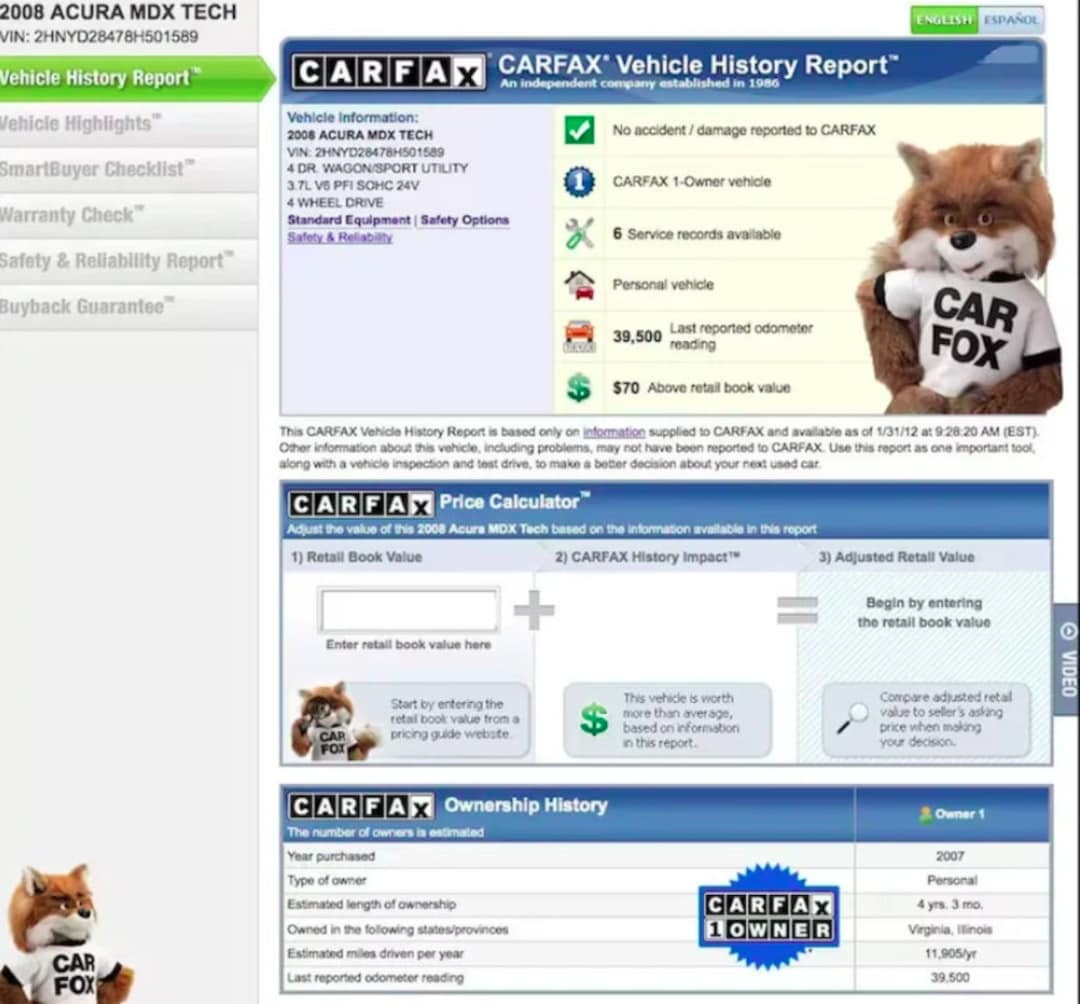Understanding the Market
Buying a used car from a private seller presents a unique opportunity, often offering a potentially lower price compared to dealerships. However, it’s crucial to understand the market dynamics, buyer motivations, and potential pitfalls to make an informed decision. This section delves into the nuances of the private used car market, equipping you with the knowledge to navigate this often less structured environment.
Typical Used Car Buyer
The typical used car buyer for sale by owner is often a price-conscious individual or family seeking a specific make and model. They may be actively researching online, comparing prices, and prioritizing affordability over the added services of a dealership. These buyers are often comfortable with the negotiation process and are willing to take on some of the responsibility associated with the purchase, such as inspecting the vehicle thoroughly and potentially handling the financing independently.
Motivations of Private Sellers
Private sellers often list their used cars due to various motivations. Some may be downsizing, upgrading to a newer vehicle, or relocating. Others might be selling to raise funds for other needs. Financial constraints, personal circumstances, or the desire for a quicker sale often drive the decision to sell privately.
Price Range and Make/Model
The price range of used cars sold privately varies significantly depending on the make, model, year, mileage, and condition. While there’s no fixed range, vehicles from popular, reliable brands like Honda, Toyota, and Ford often see a strong presence in the market, frequently attracting buyers. Generally, private sellers tend to list vehicles in a range comparable to, or slightly below, the average market value.
Advantages and Disadvantages of Buying from a Private Seller
Buying a used car from a private seller can offer significant advantages. Potential savings are often substantial, allowing for a potentially lower price point compared to dealerships. The flexibility in negotiating price and terms is another attractive aspect. However, the lack of a warranty or the support of a dealership service department can be a disadvantage. Also, the responsibility for verifying the vehicle’s condition and history falls entirely on the buyer.
Comparing Private Sellers to Dealerships
| Feature | Private Seller | Dealership |
|---|---|---|
| Price | Potentially lower | Potentially higher |
| Negotiation | High degree of flexibility | Generally less flexible |
| Warranty | Absent | Present (depending on the deal) |
| Service | Limited or absent | Extensive |
| Vehicle History | Buyer’s responsibility | Often accessible through reports |
Buying from a private seller typically involves a more hands-on approach, requiring thorough research and inspection. Dealerships, on the other hand, offer a more structured process, providing warranties and services. The choice depends heavily on the individual buyer’s priorities and comfort level.
Navigating the Transaction

Purchasing a used car from a private seller presents unique challenges and opportunities. Understanding the process and key considerations can significantly improve your chances of a successful and fair transaction. This section provides a detailed guide to navigating the complexities of buying a used car from a private individual.
Common Steps in a Private Used Car Purchase
The process typically involves several key steps. First, research the vehicle and its market value. Next, arrange a viewing of the vehicle, followed by a thorough inspection. If satisfied, negotiations begin, culminating in the agreed-upon price and payment method. Finally, the transaction is finalized with the transfer of ownership documents.
Crucial Factors to Consider Before Purchase
Several factors are critical to evaluating the potential purchase. The vehicle’s condition, mileage, and maintenance history are vital. Also important are the seller’s reputation and transparency, as well as a clear understanding of the car’s market value. Consider your budget and financing options to ensure you can comfortably afford the purchase.
Thorough Vehicle Inspections
A comprehensive inspection is paramount to ensuring the vehicle’s condition aligns with its advertised state. This includes checking for visible damage, wear and tear, and signs of neglect. Crucially, it involves inspecting mechanical components, such as the engine, transmission, and brakes.
Used Car Inspection Checklist
A systematic checklist aids in a thorough inspection. Inspect the exterior for dents, scratches, or rust. Assess the interior for wear, tear, and cleanliness. Examine the vehicle’s mechanical components, including the engine, transmission, and brakes, for any signs of unusual noises or functionality issues. Check the tires for wear and tear.
Vehicle History Reports
Vehicle history reports provide valuable insights into a vehicle’s past. They reveal critical information about accidents, ownership history, and any outstanding issues. A thorough report can help identify potential problems and negotiate a fair price.
Types of Vehicle History Reports
| Report Type | Description | Availability |
|---|---|---|
| Carfax | A comprehensive report detailing the vehicle’s history, including accidents, repairs, and ownership. | Often available for purchase online. |
| AutoCheck | Similar to Carfax, providing detailed information on vehicle history and maintenance. | Often available for purchase online. |
| Other State-Specific Reports | Reports specific to the state where the vehicle was registered. | Often available through the state’s Department of Motor Vehicles (DMV). |
Methods of Payment
Private sellers often accept various payment methods. Cash, cashier’s checks, and certified checks are common. Wire transfers and money orders are also possible. However, using a cashier’s or certified check allows for verification and security. Using a bank transfer allows for electronic funds transfer and can be very secure if done through an authorized channel.
Online Presence and Marketing

Selling a used car privately requires a robust online presence. A well-executed online marketing strategy can significantly increase visibility and attract potential buyers. Effective use of online platforms and engaging advertising are crucial to successful transactions.
Effective Online Advertising Strategies
A comprehensive online strategy for selling a used car privately involves leveraging various platforms and utilizing targeted advertising techniques. Platforms like Craigslist, Facebook Marketplace, and specialized car forums are frequently used by private sellers. Creating compelling ads that highlight the car’s key features and showcasing it with high-quality photos is essential.
Clear and Honest Descriptions of the Car’s Condition
Accurate and honest descriptions of the car’s condition are paramount. Potential buyers rely on these descriptions to assess the vehicle’s suitability. This includes detailing any repairs, maintenance history, and visible imperfections. Exaggerating or concealing flaws can lead to mistrust and negative experiences. Be upfront about any issues, and avoid vague or misleading language.
High-Quality Photos for Online Advertising
High-quality photographs are vital for showcasing the car’s condition. Professional-looking images, taken from various angles, are more compelling than blurry or poorly lit shots. Clear images of the interior, exterior, and any important features (e.g., engine compartment, undercarriage) are recommended. Consider including images of the car’s mileage, service records, or any other pertinent documents.
Managing Inquiries and Scheduling Viewings
Promptly responding to inquiries is critical. Establish clear communication channels and respond to inquiries within a reasonable timeframe. Provide detailed answers to potential buyer questions. Schedule viewings in a convenient location, allowing for ample time for inspection. Establish clear terms for test drives and inspections.
Popular Online Platforms for Selling Used Cars Privately
A variety of platforms offer opportunities for selling used cars privately. Their efficacy depends on the target audience and marketing approach.
| Platform | Pros | Cons |
|---|---|---|
| Craigslist | Large user base, potentially reaching a wide audience. | Requires more effort to manage inquiries and safety measures, potentially exposing seller to risks. |
| Facebook Marketplace | Integration with Facebook’s extensive user network, often convenient for sellers and buyers. | Potential for scams, needs constant vigilance to maintain a positive online presence. |
| Specialized Car Forums | Reach a niche audience of car enthusiasts. | May not reach a broad audience of buyers outside the forum community. |
| Used Car Websites | Established platform, built-in trust with potential buyers. | Higher listing fees compared to other options. |
Essential Details to Include in Online Ads
Providing detailed information in ads is crucial. Ads should clearly state the car’s make, model, year, mileage, and asking price. Including key features (e.g., sunroof, navigation, etc.) and describing any noteworthy aspects or improvements to the vehicle will increase the chances of attracting serious buyers.
Questions to Ask Potential Buyers
Asking potential buyers pertinent questions can help filter out unqualified leads and ensure a smoother transaction. Examples include questions about the buyer’s financing, their intended use of the vehicle, and their budget.
Addressing Potential Issues

Selling a used car privately can be rewarding, but it also carries inherent risks. Understanding potential pitfalls and proactively preparing for them is crucial to a smooth and successful transaction. This section Artikels common issues, dispute resolution strategies, and the importance of documentation.
Navigating the complexities of a private car sale requires careful planning and attention to detail. Misunderstandings, disagreements, and hidden issues can arise, but a well-structured approach, a clear contract, and meticulous record-keeping can mitigate these risks.
Common Transactional Issues
Potential problems in private used car sales often stem from differing expectations or lack of clarity. Buyers and sellers may have differing interpretations of the car’s condition, mileage, or past maintenance. These discrepancies can lead to disagreements and disputes. Misunderstandings regarding warranties, payment terms, and delivery procedures are also possible.
Resolving Disputes and Disagreements
Effective communication is key to resolving disagreements. Open and respectful dialogue, focusing on understanding each party’s perspective, is vital. If initial conversations fail to resolve the issue, consider involving a neutral third party, such as a trusted friend or family member, to facilitate communication. Alternatively, using a mediator or seeking legal counsel can help navigate complex disputes.
Importance of a Written Contract
A well-drafted contract is essential for a private car sale. This document should clearly Artikel the agreed-upon terms, including the car’s condition, price, payment method, and delivery arrangements. A detailed contract serves as a legally binding agreement, protecting both the buyer and the seller from potential disputes. Include specific details about the vehicle’s mileage, service history, and any known issues. This reduces ambiguity and potential future disagreements.
Addressing Discrepancies in Car Condition
If the car’s condition differs from the description provided, a proactive approach is crucial. If the car does not meet the advertised description, negotiate a solution with the buyer, perhaps offering a price adjustment. A clear record of the agreed-upon terms, including any price reductions or modifications, is vital.
Handling Hidden Issues or Misrepresentations
Hidden issues or misrepresentations can severely impact the transaction. If the car has undisclosed issues, be prepared to address the situation by offering a refund or negotiating a repair agreement. Thorough inspection of the car before the sale is essential. If misrepresentations are found, consider legal recourse as necessary.
Importance of Documentation and Record-Keeping
Maintaining meticulous records of all communications, inspections, and agreements is critical. This documentation will serve as crucial evidence in case of disputes. Keep copies of emails, text messages, and any other correspondence. This documentation ensures transparency and clarity in the transaction.
Contacts to Involve in Disputes
If disputes arise, identifying key contacts is vital. These contacts can include trusted individuals, legal counsel, or consumer protection agencies. Consider creating a list of contacts and their contact information for easy access during a dispute.
Dispute Resolution Resources
Several resources can provide guidance in resolving disputes. These resources might include consumer protection agencies, online dispute resolution platforms, or legal aid organizations. Research and identify the relevant resources in your jurisdiction to ensure a smooth and efficient resolution process.